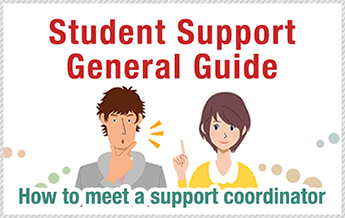Who could have predicted that this situation would continue for a long time? After the Japanese government emergency declaration was issued, the mood of self-restraint became severe rapidly.
In the midst of coping with a situation like the COVID-19 outbreak, we may feel uncertainty about the future or suffer from isolation.
Looking at the situation around the world, it is also true that we must continue to quarantine in order to prevent the collapse of the medical care system and further spread of infection. However, it is feared that the number of people who suffer from mental health problems may increase due to fear and anxiety about COVID-19.
It should be emphasized that distress and anxiety are normal reactions to a situation as threatening and unpredictable as the coronavirus pandemic.
Stress reactions unique to COVID-19
|
Anxiety about unknown stress
|
Currently, COVID-19 is still completely unknown.
Many people are worried if they will become infected without noticing.
|
|
Feelings of loneliness and distress due to limited
contact with people
|
Everyone wants to be with someone when times are
difficult. However, it is required to maintain social distance from people in
the current situation. People may feel depressed and lonely due to this
restriction.
|
|
The TMI (too much information)
effect can lead to the danger of information overload
|
There is a tremendous amount of information about
COVID-19, and it is important to have accurate and up-to-date public health
information about this topic. However, too much information can make you more
likely to become upset or anxious. Also, there is a risk that you will find
some scientifically unfounded information. You may feel more insecure if you
access information recklessly.
|
Tips for sustaining your well-being during the response to COVID-19
If the above stress continues for a long time, you may lose your mental and physical balance. During the quarantine period, there may be many people who stay up late, can't get up in the morning, and look at their smartphones too much. Such behavior could disturb the autonomic nervous system.
We may experience increased feelings of anxiety, helplessness, impatience, irritability, or frustration. We might also experience a sense of inadequacy. While feeling worried is normal and expected, there are many ways we can increase our resilience during this time. Identifying ways to manage our mental health is also crucial. There are various ways to cope with stress and anxiety, and it is good to have many methods available. So, please try some of the below. Much like acquiring a personal repertoire of coping skills, you can choose a handful of coping strategies of your own.
Eat something warm and delicious. Physical approaches are easy and effective.
If you have a pet at home, spend more time with your pet. If you don't have a pet, you can feel secure hugging something fluffy.
Warm your body. Soak in a bathtub, drink hot water, have moxa treatment. If you warm your body, it will be easier to fall asleep.
Be aware that you can be more irritable and more vulnerable than usual. In this unprecedented situation, it is natural to feel burdened.
Visualize your stress. Write down what is stressful to you right now and how you can get rid of it.
Choose your media sources carefully and purposefully. Information is useful, but too much information can be unhelpful. Choose actionable information to help protect yourself and your loved ones, distance yourself from disturbing or negative expressions, and stick to reliable news sources.
Stay connected to others. You can connect with people online. Contact your friends and family regularly with a comfortable distance for yourself. Research has shown that social connectedness creates a positive feedback loop that fosters social, emotional, and physical well-being.
Be productive and creative. Because of COVID-19, there are many people who have been obliged to change schedules and social plans. How about spending this time on that "thing that you could never have done before"? There are also fun things you can find even in a time of self-restraint, such as reading the "unreads", decluttering your home, organizing clothes, and cooking.
We wish you good health and high spirits!



